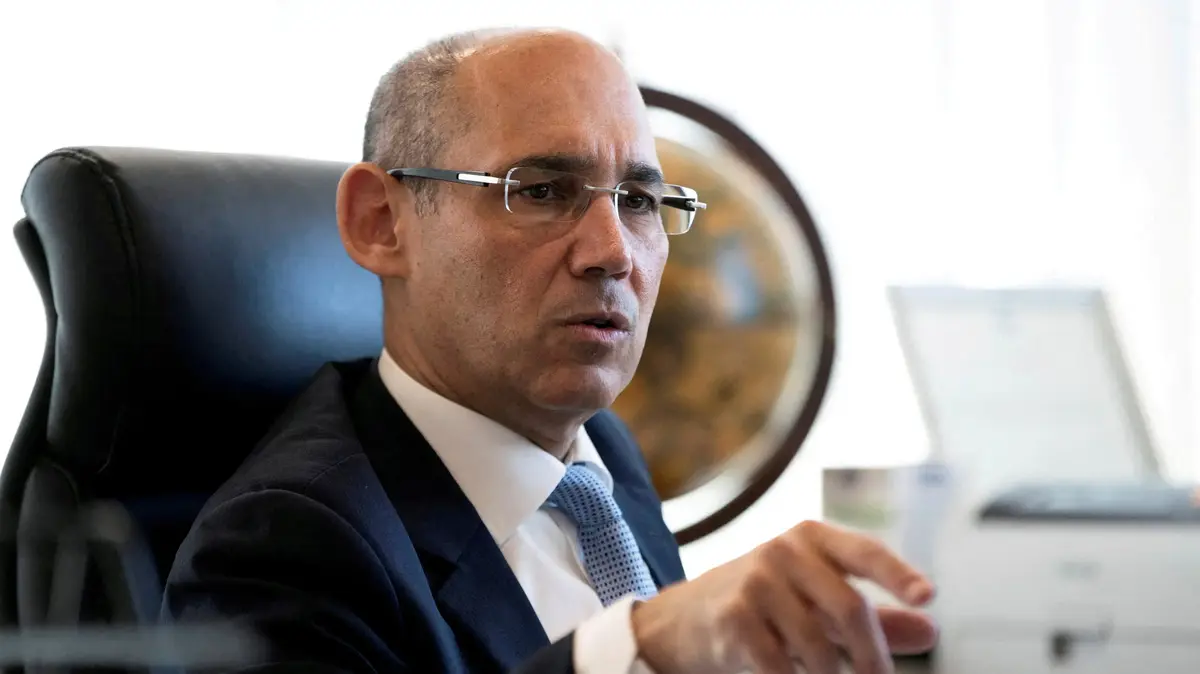2022 was an excellent year for banks - and the forecast for the next two years is even better.
So why are the CEOs afraid of the reform? (Photo: ShutterStock)
Here are some numbers, but first of all, if you don't want to sit down so your head doesn't spin: Bank Leumi earned NIS 7.7 billion this year (all numbers reflect net profit), Hapoalim reported a net profit of NIS 6.6 billion, Mizrahi Tefahot closed a record year with profits of NIS 4.5 billion, At Discount they numbered 3.5 billion and internationally about 1.6 billion.
The numbers look even better when you check the return on capital, for most of them at a rate of between 15%-20% and especially when compared to the profits of 2021 (which are the highest by themselves) and reveal an increase of tens(!) of percent.
Against this background, it is a bit strange to see the CEOs of the major banks meeting with the President of the country or signing a letter of support for the Governor of the Bank of Israel, because if everything is so good, what are they afraid of?
And what's more: even those who don't trust the consumption of financial news could not have missed what seemed like a wave of collapses of financial institutions in the US, so how is it that the banks in Israel do not know what to do with the orders (well, they do know - 30% of which was distributed as a dividend to the shareholders)?
If you haven't been jealous of your fellow bankers until now, you will surely be happy to know that while many Israelis, even in the high-tech industry, which until recently was considered the engine of the economy, are worried about the future, the banks are rather calm: the Psagot Investment House estimated that the trend will continue Both in 2023 and 2024, years in which the banks are expected to record similar numbers, if not even more impressive.
Governor of the Bank of Israel, Prof. Amir Yaron.
His interest rate hike, following the American Fed, was intended to fight inflation, but provided the bankers with handsome profits (Photo: Image processing, Flash 90, Yonatan Zindel)
In a word, Rabit
Before we touch on the main reason for the profit, it should be said that the banks in Israel, at least most of them, made impressive efficiency moves: they closed branches, transferred operations to online and digital platforms, and some even sold assets.
Only these made only a meager contribution to the profit line, which cannot be said for the rising interest rate.
True, 2021 was a very good year for businesses, mainly thanks to high-tech, but all this good only partially met the banks: Israeli companies issued abroad, were sold, became "unicorns" and more - only to the left mainly banks overseas or the tax authority benefited.
On the other hand, the interest rate that started climbing exactly a year ago, as an attempt to curb the rise of inflation, did them only good.
It is true that those who closed money for deposits also benefited from an improved majority (which also improved even more following a public audit), but still - even though this was slightly improved, there is still a large margin between what the banks charge for the money they sell to us (in credit facilities, loans and mortgages) and what they We are paid for the money we sell them (deposits).
There are billions in this margin - and he is the one responsible for the huge profits.
More in Walla!
The quality water of Mi Eden - at your home in a compact and designed water bar
Served on behalf of Eden Water
Silicon Valley Bank.
How is it that in Israel the billions are counted while in the great USA there are banks that are collapsing? (Photo: GettyImages, Justin Sullivan)
So why are the US banks collapsing?
First of all, it is important to clarify: despite the great media coverage, mainly because of the fall of Silicon Valley Bank (SVB), which is related to high-tech standing at the forefront of the protest against the legal revolution, the American economy is not really in trouble.
Boll?
Yes - from here to Wall Street, but not something that reminds, for example, of the crisis of late 2008.
In this context, it should be understood that the structure of the banking system in America is different.
Firstly, because the federal system is limited (supervising all the banks in the different countries, each of which may have its own restrictive or permissive laws) but there is sectorial banking, for example crypto or hi-tech.
As soon as the high-tech industry began to spread to the bank the cold that had spread in the capital markets, the bank began to lose.
Here is the place to mention that despite the huge sums lost by Chinese pharma-tech companies or Swedish pension funds, it is not about the closing of large banks.
Despite this - and although in the US the wounds are being licked while in Israel the profits are being counted, there is a great connection between the collapse of the small banks in the US and the concerns of the Israeli bankers, who all joined as one to the warnings of the economists (and of the governor of the Bank of Israel) in fear of the legal reform-coup .
The numbers in the profit line are great, but the day when the Israelis will run, God forbid, to the bank, has nothing to do with the numbers at all (Photo: ShutterStock)
Why are bank managers afraid?
What are bank managers in Israel afraid of?
Apparently the blitz of legal legislation has no direct connection to them and the assumption is that it will affect, if at all, their profit line only marginally.
Well, they're afraid of exactly what we saw in the US. How is that possible?
Very simple: they're afraid of the sentiment. Of that elusive factor that unfortunately is the most important in the economy, perhaps the field that is most concerned with people. And a quick glance at the people around them, makes them start to sweat, on Although for the time being everything looks fine (and even promising!) when you look at just the numbers.
Unfortunately, there is no exact statistical figure, but in the last month there seems to be an increase of thousands(!) percent of Israelis who request to open bank accounts abroad - and a brief check at the RO offices" H and lawyers who are handling the issue, just recover the things.
The same is true for real estate agencies that sell apartments abroad to Israeli clients.
It is true that the real estate market in the world, in general, has been affected by interest rates and is on the curb, not to mention declining, but the ultra-orthodox Israelis want to start spreading risks. It is important to clarify that, for now,
the numbers are low. Most high-tech companies, for example, threaten (or even carry out) to withdraw funds from Israel They threaten poppers with a gun. In any case, most of their value is on paper - and those who roll over large sums of money often do so through foreign banks. But the sentiment is becoming negative day by day: here a friend is promoting the relocation he had postponed for years, there he who thought of buying an apartment in Haifa, bought it in Athens , just to be sure - and this trickle may not have turned into a flood yet, but it is definitely getting stronger.
The concern of the bankers is very similar to that of the generals (res.): if the legislation turns from propaganda into reality, that is, from a preliminary reading to approval in the second and third readings, there may not only be a wave of refusal to reserve funds, but also a wave of money smuggling (the use of the word "smuggling" is not God forbid implies an illegal act. Every person is allowed to move his savings as he wishes).
From here to the line of worried customers that stretches in front of the bank, the road (which now seems so long, almost imaginary) could be miraculously shortened - and that's exactly what the bankers fear.
They are not afraid (that is, they are, but only marginally) of stopping investments, they are not afraid of a small asterisk that will be added to Israel's economic portfolio in the form of a credit downgrade (serious in itself, if there is one).
They are afraid that the negative sentiment of the sector that holds most of the money in Israel will increase.
They are anxious for the day when there will be a restriction - even the lightest one - on the movement of citizens' money.
Because with all due respect to the fantastic numbers in the reports and the many billions that bank managers will generate this year for their shareholders, they understand that this moment will swell into a snowball that will crush even the strongest financial institution in its path.
What are the chances of that?
Among us, weaklings.
But those who want to wake up drenched in cold sweat, should remember that until a few weeks ago they seemed not weak but far-fetched.
And who, like the bankers, knows how much this small gap, just like the gap between the selling and buying rates of the money that made the financial institutions in Israel so profitable, could be the difference between great reports and a real catastrophe.
Of money
opinions
Tags
Bank Hapoalim
National Bank
Mizrahi Bank
Discount Bank
the international Bank













